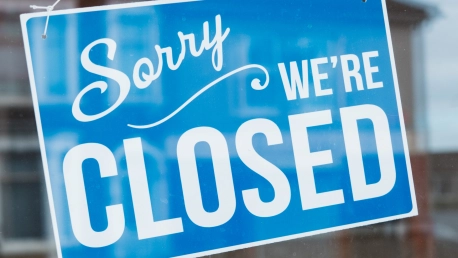As the COVID-19 pandemic has spread from China to Italy, the US, Spain and beyond, it has also affected retailers and businesses across the world. Their first hurdle: closing down brick-and-mortar stores. Yet in such uncertain times, other fears have started to appear on the horizon. Retailers are among the first companies in dire need to respond to workers’ fears and healthcare problems, while also managing logistics disruptions. With consumers in isolation and avoiding public places, e-commerce seems to be the only answer to the crisis.
As entire countries come under quarantine and social distancing measures are now the new norm, let’s have a look at what’s in store for retailers.
Regulatory Scrutiny
Not all stores are currently closed, but those who continue operations are under immense scrutiny from the authorities. As a result, they need to follow new rules and developments to the letter to ensure the public safety that citizens nowadays demand. The US Centers for Disease Control and Prevention (CDC) recommended social distancing among citizens and gatherings should only include small groups of people. Such measures are expected to impact retail earnings as well in the coming quarters.
Yet the overall impact of coronavirus on the global retail scene is still hard to asses. Retailers are seeing changes on a daily basis and they have little time to respond. However, the risk of noncompliance does not only attract significant penalties, but also reputational damage.
Customer and Employee Safety
When confronted with a crisis, providing safety for the people working with and for you is the first rule. Some retailers can allow part of their staff to work from home, but others require their cashiers, drivers and warehouse workers to show up in person. Many retailers will need to invest in frontline hygiene, plus a host of other protective measures. Aside from remote work, social distancing also means minimizing cash payments and offering self-checkout options.
Many international retailers have decided to close their stores and manage sales online. Primark has recently joined Glossier, Nike, Urban Outfitters, and Patagonia in temporarily shutting all stores in an effort to slow and ultimately stop the spread of the virus. While moving all business online is not possible, this decision remains one of the most popular in dealing with the pandemic.
On the other end of the spectrum, those prioritizing their bottom line in times of crisis have been harshly criticized by public consumers. The New York Times published a story quoting comments on Macy’s Facebook page.
“Let those employees go home,” someone wrote on the day Macy’s finally decided to close a hundred stores across the US.
Similarly, allegations emerged in the UK that COVID-19 safety standards have been ignored inside one of Sports Direct’s facilities in Derbyshire. This was reported just one day after the company bowed to government pressure and closed all its retail stores. They initially intended to remain open but the government had to intervene.
Online Sales—A Feasible Solution?
E-commerce was already on the rise before the crisis, and it may grow even more as a consequence. Retailers everywhere are counting on massive sales, especially in some industries and businesses. Even though plans may sound optimistic now, market data seems to predict a different outcome.
After a continuous boom of more than a decade, retail is actually expected to contract for the first time since the financial crisis. Retailers may expect different results, with some managing to expand their sales, while others, especially mall-based stores, facing major challenges ahead.
Many retailers are already struggling with the rise of online commerce. As Amazon (AMZN), Walmart (WMT), Costco (COST) and Target (TGT) kept thriving, more than 9,300 other businesses closed in 2019, according to CNN. While e-commerce was a known threat, the COVID-19 pandemic hit retailers out of nowhere, swiftly and brutally. With no travel, no Olympic Games, NBA, or major soccer leagues, retail is bound to experience a new crisis at a very different level. The need to adapt to the digital age becomes crucial, as retailers are being forced into a race against time.
Final Thoughts
The COVID-19 pandemic is not only a global crisis but also a universal one. With the outbreak expanding, retailers may need to adapt to trends that were already reshaping their industry. Working from home, e-commerce, new technologies, and supply chain management have now become more important than ever. Businesses everywhere are struggling to adapt to the crisis, but it’s almost impossible to anticipate a good course of action. However, one thing remains certain in uncertain times—the need to respond with empathy and concern to both customers’ and employees’ needs has never been greater.









